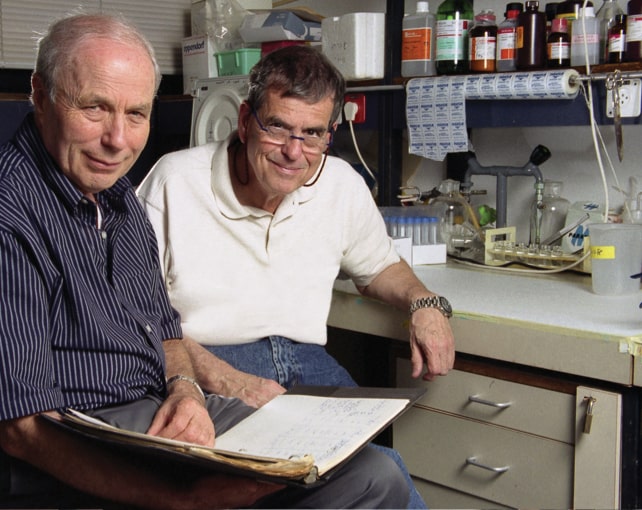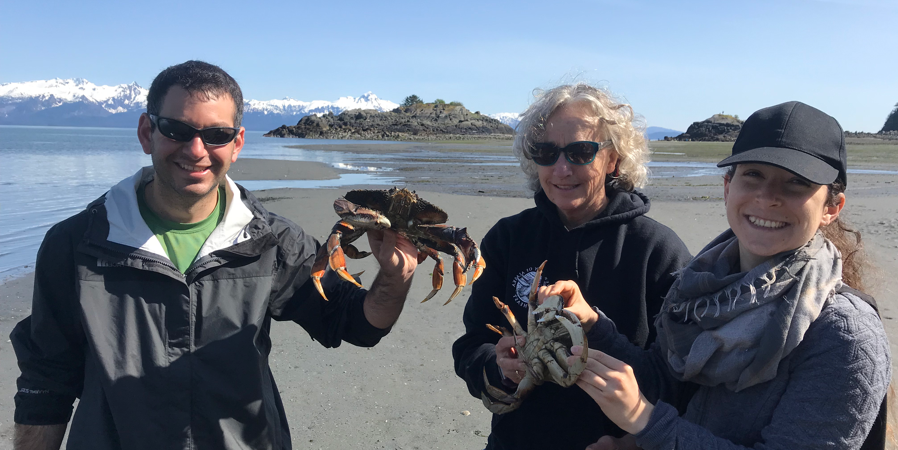Homepage - BSF (original) (raw)
Since its inception, the BSF has awarded over $1 Billion to over 5,500 research projects of the highest quality. Many of these have led to important scientific, medical and technological breakthroughs.
The U.S.-Israel Binational Science Foundation (BSF) promotes scientific relations between the U.S. and Israel by supporting collaborative research projects in a wide area of basic and applied scientific fields, for peaceful and non-profit purposes.
Founded in 1972 by an agreement between the United States and Israel, the BSF is an independent body, directed by a board of governors consisting of five American and five Israeli members. Its base of operation is in Israel.

BSF grantees for over 10 years, Nobel Laureates Profs. Avraham Hershko and Aaron Ciechanover (Technion)
- January 9, 2025
The BSF Climate Solutions Special Program 2025 - October 14, 2024
The BSF Office will be closed for the Sukkot Holiday - August 7, 2024
Submission Deadline for Prof. Rahamimoff Travel Grants Program - August 7, 2024
BSF Website Will Open for Submissions on September 1, 2024 See All

BSF grantees for over 10 years, Nobel Laureates Profs. Avraham Hershko and Aaron Ciechanover (Technion)
April 2, 2025
Deadline for pre-proposals to the BSF Climate Solutions Program See All50 Nobel Prize laureates
09 Winners of the Turing Award
71 Recipients of the Wolf Prize
09 Recipients of the Fields Medal
25 Winners of the Albert Lasker Medical Research Award
Nobel-winning discovery of critical cell function
The 2004 Nobel Prize for Chemistry was awarded to Profs. Avram Hershko and Aaron Ciechanover (Technion), together with Prof. Irwin Rose (UC Irvine), for…
Read More
Pioneering Advances in Computer Science and Robotics
BSF-supported research in computer science has spurred pioneering advances in computational geometry, which lies at the heart of diverse areas such as robotics and…
Read More
Cancer Diagnostics
The BSF played a key role in the worldwide use of PET (Positron Emitting Tomography) to identify functional disorders, indicating cancer. The development of…
Read More
- All Scientific Achievements

Dr. Sherry Tamone (Univ Alaska) with her student and a graduate student of Prof. Amir Sagi (Ben Gurion Univ.) Tom Levy at their study area in Alaska
Discussing the results are Profs. Phil Baran (Scripps Research Institute) and Doron Shabat (Tel Aviv Univ.)
In the lab of Prof. Jerri Bartholomew (Oregon State Univ.) , her student Stephen Atkinson with Prof. Tamar Lotan (Univ of Haifa)
Computer scientists Dr. Jonathan Berant (Univ. Tel Aviv) and Dr. Vivek Srikumar (Univ. Utah) with students
Dr. Onn Crouvi (Geological Survey of Israel) with students studying regional modelling of calcic soils on site in Southern Israel
Hydrologists Profs. Yokochi Reika (Univ. Chicago), Peter Mueller (Aragone National Lab.), Yossi Yechieli (Israel Geological Survey), Eilon Adar (Ben-Gurion Univ.) and their students at the end of a intense two weeks sampling campaign at the shores of the Dead Sea (Ein Kedem hot spring) [pictured by Dr. A. Burg, Israel Geological Survey]
Enjoying art are mathematicians Profs. Vladimir Berkovich (Weizmann Inst.) and Mattias Jonsson (Univ. of Michigan)
Resume slideshow Pause slideshow
1372
External reviews from around the world for applications in 2022
- Winter Edition 2022
Letter From the Executive Director
This year, BSF celebrates its 50th anniversary, as well as the 10th year of the United States National Science Foundation (NSF) – BSF partnership. Anton Post shares why he believes these two milestones are very much linked – and why he is optimistic that BSF’s already impressive growth will continue well into the future. Read More - Winter Edition 2022
Board of Governors – Kendra Sharp
BSF’s newest representative from the United States possesses a unique combination of experience in both mechanical engineering and international collaborations. She talks about her experience in science and global affairs, and why the NSF – BSF partnership has become one of the NSF’s most successful international programs. Read More - Winter Edition 2022
NSF – BSF success stories
As we recognize the 10th anniversary of the NSF-BSF partnership, we shed light on just two of the countless examples of how Israeli and American scientists have worked together and achieved impressive results that have the potential to transform our lives. One team has discovered how robots can make surgeries safer. The other has provided profound new insights on how the brain helps mammals to navigate spaces. Read More - Winter Edition 2022
Nobel Prize winner Joshua Angrist
Joshua Angrist is the 48th current or former BSF grantee to become a Nobel laureate. Now a celebrated economics professor at MIT, Angrist shares how his varied Israel experiences – including studies of class sizes and labor markets -- have shaped his career as a leader in the use of natural experiments in economics. Read More
The support of the United States – Israel Binational Science Foundation has not only been a valuable factor in the important scientific developments achieved at the present time, but will also prepare the next generation of U.S. and Israeli scientists for a leadership role in our global tomorrow.
The support of the BSF for over 23 years was essential for the discoveries that brought me the Nobel Prize. Thus, the BSF had a very important role in this achievement…..While I can survive without a BSF grant, this is not so with young Israeli scientists. This is very important for the future of Israeli science.
“I have known many Israeli and American scientists that have benefited enormously from these binational collaborations. In this way science in both countries has been greatly aided, but also the relationship between our two countries has been greatly strengthened.
The deep friendship and strategic partnership between Israel and the United States is built on the pillars of shared values, one of which is the perpetual search for knowledge and the advancement of science and technology for the good of mankind. For more than three decades, the BSF has embodied that vision…As former ambassadors who have been deeply involved in U.S.-Israel relations for many years, we strongly affirm the critical importance of the Israeli-American scientific enterprise, which the BSF is doing so much to promote with extraordinary effectiveness.
My research was supported by the BSF for almost 30 years…This enabled my research group to collaborate with two of the most outstanding scientists in the field of chemistry…..An additional important aspect of the BSF is the social-cultural one….builds bridges between Israeli and American researchers…with several [U.S. partners] I have continued to collaborate long after BSF grants have expired…I have also used BSF travel grants to send to the USA other researchers in my group, allowing them to interact directly with American colleagues, including graduate students. I believe this is a very important part of the BSF program…
The BSF has had a major influence in my career, when I started a collaboration with Jacob Klein (Weizmann)…My often twice per year visits to the Weizmann Institute increased contacts with other groups there and at other Israeli universities…There is no doubt that the BSF has had a defining influence on my global research program.


